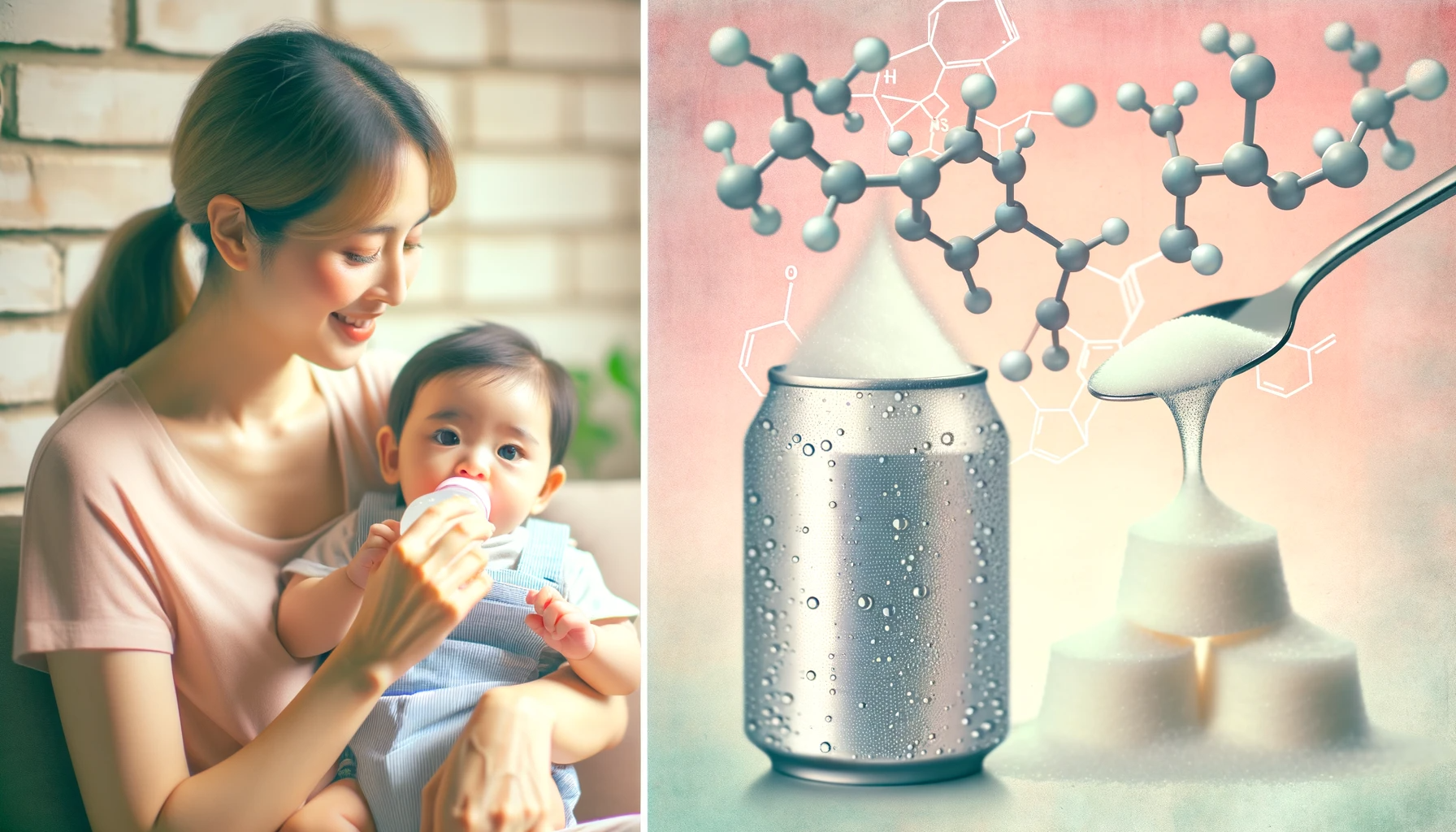Scientists in the US are conducting a study to determine whether mothers can transmit low-calorie sweeteners to their infants through breastfeeding.
 Study: The MILK study: Investigating intergenerational transmission of low-calorie sweeteners in breast milk. Image Credit: Created with the assistance of DALL·E 3
Study: The MILK study: Investigating intergenerational transmission of low-calorie sweeteners in breast milk. Image Credit: Created with the assistance of DALL·E 3
Background
Low-calorie sweeteners (LCS) are added to food and drink products to develop a sweet taste without providing calories. Availability of dietary products containing LCS has increased more than 3-fold since 2010. Sucralose and acesulfame-potassium are the most common types of LCS, with distinct chemical and physical properties that facilitate their transfer from mothers to infants through breastmilk consumption.
About 44% of lactating mothers in the United States consume LCS-containing beverages. Although the US Food and Drug Administration (FDA) considers LCS safe for human consumption, the health impact of early-life exposure to LCS is not fully known. Evidence from animal studies indicates that maternal consumption of LCS may negatively impact an infant’s body weight and health.
In this study, scientists have described the development of maternal and infant pharmacokinetic models of LCS, including sucralose and acesulfame-potassium.
Study design
The study will enroll a total of 40 mother-infant pairs. Adult women who are exclusively breastfeeding and have an infant between 4 weeks and 6 months of age will be included in the study.
The mothers will be instructed not to consume LCS one week before the study begins. For baseline measurement of LCS concentrations, breastmilk and plasma samples will be collected from the mothers before administration of the study drink. Following baseline sampling, mothers will be instructed to consume 20 ounces of the study drink containing high amounts of sucralose and acesulfame-potassium.
After study drink consumption, breastmilk and plasma samples will be collected from the mother over a period of 72 hours. Plasma samples will also be collected from the infants at a pre-specified time interval following maternal consumption of the study drink. All samples will be analyzed by liquid chromatography-mass spectrometry to determine the concentrations of sucralose and acesulfame-potassium.
Maternal pharmacokinetic model
The concentrations of sucralose and acesulfame-potassium in breastmilk and plasma samples collected at specific time points after a single oral dose will be analyzed and used as initial estimates to develop a base model of maternal pharmacokinetics. The model will assess a range of pharmacokinetic parameters, including area under the curve (AUC), maximum serum concentration, time to reach maximum concentration, terminal elimination half-life, apparent volume of distribution, and apparent clearance.
A base structural model will then be developed using the timepoint-specific LCS concentrations. The model will be explored by factoring in the previous literature data. Plasma and breast milk LCS concentration data will be analyzed together in the population pharmacokinetic analyses.
After estimating pharmacokinetic parameters, the data will be used to determine the effects of participant-specific prognostic factors, including age, sex, ethnicity, weight, self-reported LCS consumption, dietary intake, and maternal blood volume. This information will be used to determine individual variability in pharmacokinetic parameters.
Infant pharmacokinetic model
The infant pharmacokinetic model will be developed by scaling down the maternal model using the principles of body-size-based allometry and maturation factors. A base model of infant pharmacokinetics will be developed using the infant data and the scaled model.
The final population pharmacokinetic model for LCS in both mothers and infants will be evaluated and qualified using standard ‘goodness-of-fit’ diagnostics and quantitative predictive check methods.
The LCS concentrations in breastmilk, as well as the volume of milk consumed by the infant, are necessary information to estimate the infant dose for modeling. In cases where the consumed milk volume is unknown, several methods will be applied to address the missing data.
In one method, infant weight will be measured before and after milk consumption. The change in body weight will be used to estimate the volume of consumed milk by examining the correlations between weight changes and volumes of breast milk consumed among infants who ingest pumped breast milk (infants for whom the volume of consumed milk is known).
In another method, the average volume of milk consumed by infants by age will be obtained from the available literature, and the volume will be divided by the mother-reported number of feeds on the day of sampling.
The final linked version of maternal-infant models will be used to determine the concentrations of LCS in infant plasma after repeated consumption of LCS by mothers (a real-world condition).
Study significance
The maternal-infant pharmacokinetic models will be the first of its kind to estimate LCS exposure in infants following maternal consumption of LCS-containing beverages. The information generated by the models will help us understand the fundamentals of intergenerational LCS transmission.